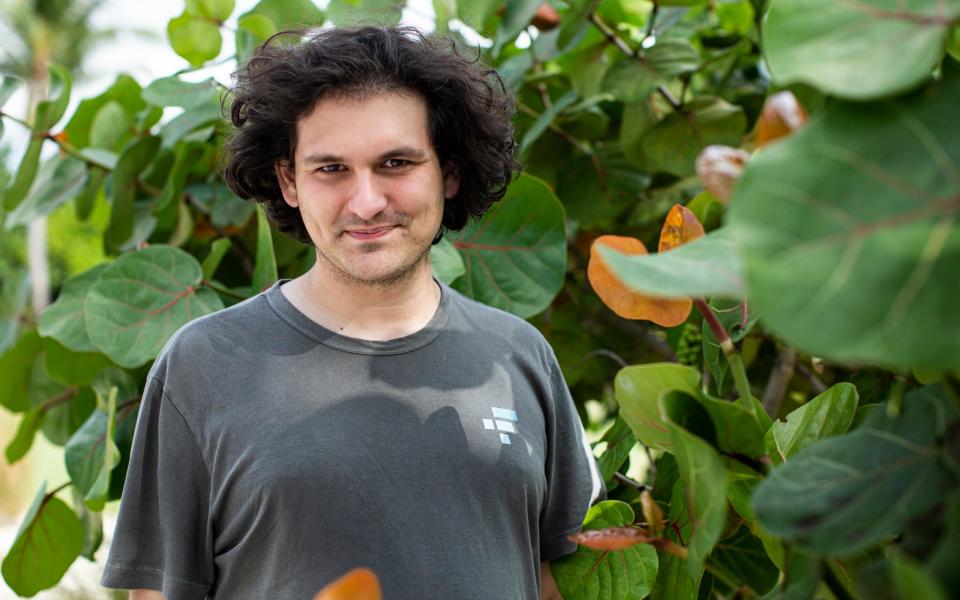New York Times criticised for hosting FTX founder at $2,500-per-ticket conference

The New York Times has come under fire for hosting the founder of the collapsed cryptocurrency exchange, FTX, at a high-profile conference.
Sam Bankman-Fried is listed as a guest speaker at the New York Times DealBook Summit on November 30, which charges $2,500 (£2,062) for a single ticket.
In a tweet on Thursday, Mr Bankman-Fried confirmed he would turn up in person to speak at the event.
The announcement sparked a backlash from parts of the crypto industry, which has been plunged into turmoil following the collapse of FTX and the loss of billions of dollars in customer funds.
Mr Bankman-Fried has faced personal criticism for his role in the saga, with administrators saying the cryptocurrency exchange’s financial records were worse than Enron, whose bankruptcy wiped the company's $60bn valuation to zero and triggered the collapse of global audit firm Arthur Andersen.
Scores of Twitter users took aim at the New York Times for pushing ahead with the appearance, while Elon Musk tweeted: “Is this really still happening?”
Mr Musk later announced that the platform would offer a “general amnesty” to suspended accounts that had not “broken the law or engaged in egregious spam” after launching a Twitter poll.
“The people have spoken. Amnesty begins next week. Vox Populi, Vox Dei,” he said. The Latin phrase means "the voice of the people is the voice of God".
Meanwhile, David Sacks, a long-time ally of Mr Musk and former PayPal executive, tweeted: “For years, the elite media has treated every successful tech startup as if it’s a fraud that needs to be exposed. But when the mother of all frauds actually comes along, they minimise and cover for it.”
Andrew Ross Sorkin, the New York Times columnist who manages the annual conference, defended his decision to interview Mr Bankman-Fried.
He wrote on Twitter: “There are a lot of important questions to be asked and answered. Nothing is off limits. Looking forward to it…”
But the move will pile fresh pressure on the New York Times after it was accused of publishing a “puff piece” about the FTX founder in the aftermath of the company’s collapse.
The newspaper last week published the first interview with Mr Bankman-Fried since his fall from grace, but it was criticised for failing to confront the crypto boss about allegations that funds were illegally moved between his companies.
US bankruptcy filings have revealed that the collapse of FTX left around one million creditors, with tens of thousands of British traders out of pocket.
Mr Bankman-Fried is now under investigation by the US Justice Department and a string of financial regulators.
The FTX founder is due to appear alongside a host of other big-name speakers at the conference next week, including Facebook founder Mark Zuckerberg, Amazon boss Andy Jassy and Ukrainian President Volodymyr Zelensky.
It came as Elon Musk disbanded Twitter’s Brussels office after a row over content moderation in the European Union.
Julia Mozer and Dario La Nasa, who were in charge of Twitter's digital policy in the political bloc, left the company last week, according to the Financial Times.
The executives were the driving force in getting the company to comply with the EU's landmark Digital Services Act, which came into force last week setting new rules for Big Tech companies to keep users safe online.
Sources told The Telegraph that Twitter, which previously kept in regular touch with MPs and scrutiny committees in the Houses of Parliament, had gone silent since Mr Musk’s takeover in October.
Other senior people had already left the small Brussels office at the start of the month as Twitter’s new owner sacked half of the company's staff, reducing headcount from 7,500 to around 3,750 in the weeks following his $44bn (£38bn) buyout of the company.
Another 1,000 staff voluntarily quit over the last few days as Twitter’s new owner demanded they adopt a “hardcore” work-life balance in the company’s favour.
The Tesla and SpaceX chief executive had tweeted that “the bird is freed” after completing his acquisition of Twitter.
Shortly afterwards, EU commissioner Thierry Breton issued a curt reminder of the EU's content-moderation laws, saying: “In Europe, the bird will fly by our rules.”
A video shared on Twitter by Mr Breton in May featured the billionaire and the politician endorsing each other’s views on social media moderation.
When asked by the internal market commissioner if new EU rules on filtering user posts fitted with his vision for Twitter, Mr Musk answered: “Very much agree with… I agree with everything you said, really, I think we’re very much of the same mind.”
A spokesman for the NYT said: “The DealBook Summit has long convened the most newsworthy figures of the moment in business, policy, and culture. The role of journalism is to ask questions and seek answers on behalf of the public, and we look forward to conducting this important and newsworthy conversation.”

 Yahoo News
Yahoo News 